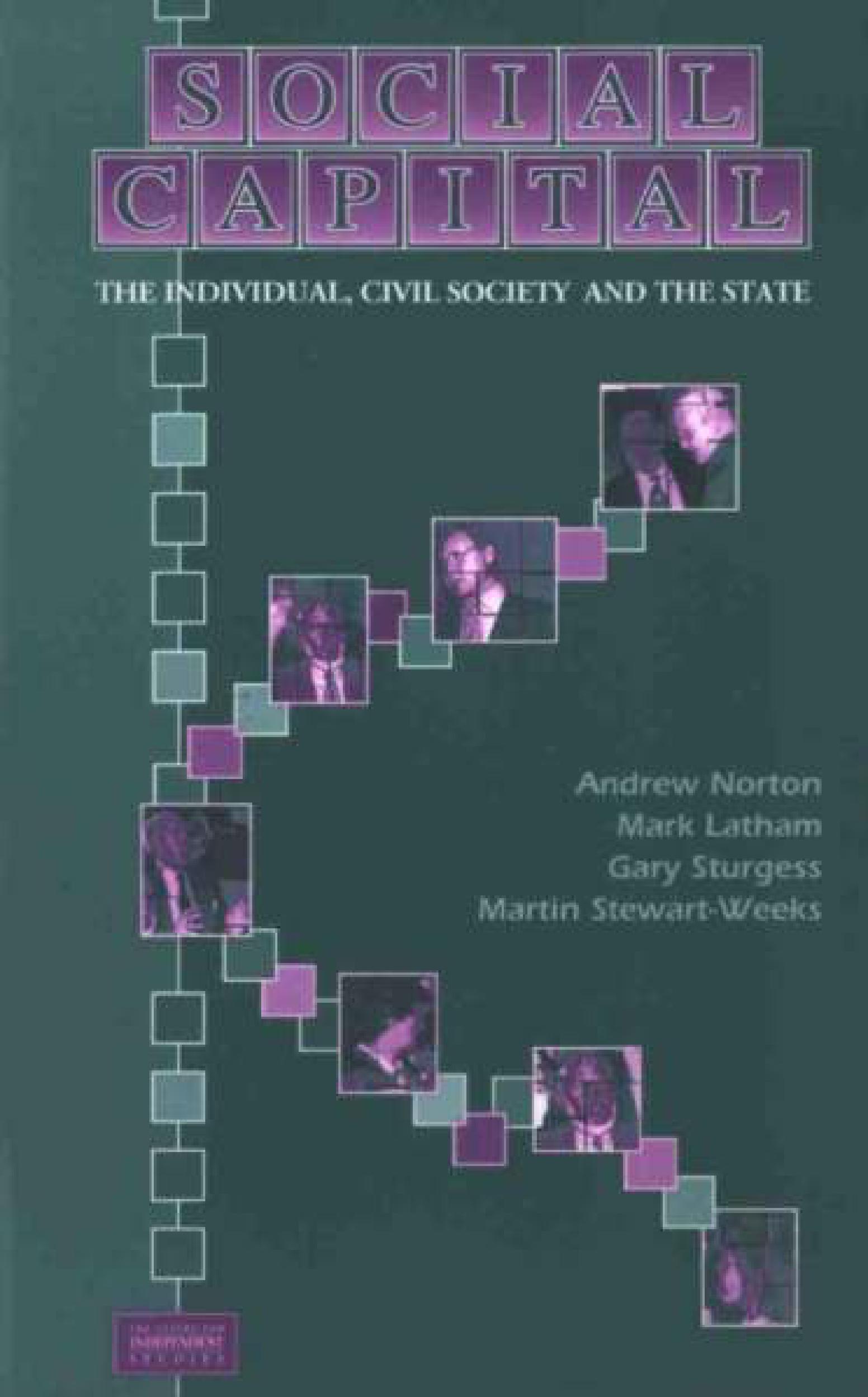
In a remarkable instance of intellectual convergence, the concept of ‘social capital’ has recently attracted interest from all points on the political spectrum — liberal, conservative and communitarian Although each group tends to choose an interpretation to suit its own purposes, there are also some common themes that are emerging from the debate.
For liberals, social capital is important because it helps to answer the question of how a liberal society — a spontaneous order of free individuals — can develop and maintain itself. Critics of liberalism claim that a liberal society must lack cohesion because it lacks a centrally-imposed common purpose. But the idea of social capital suggests that the key institutions for maintaining social cohesion are independent of the sphere of government.
The Centre for Independent .Studies has undertaken its social capital project in order to investigate these issues. Important questions include: What is social capital? How is it collected and dissipated? What role does it play in a liberal order? How much rethinking does it require in the roles of government and the individual citizen?
The essays in this collection, which represent a preliminary attempt to address some of these questions, arise from a workshop conducted by the CIS on 29 January 1997.
Andrew Norton offers an introduction to some definitional issues concerning social capital and the related term ‘civil society’. He cautions against adopting too restrictive a definition of these terms. In particular he warns that we may miss out on important features if we fail to include families, commercial firms and informal networks in our analysis.
Mark Latham considers the importance of social capital for public policy in Australia, and the attitude that social democrats should adopt towards it. He is critical both of those on the left who believe that social capital can serve as an excuse for reconstructing big government, and of those on the right who put all the blame on government for the perceived decline in social capital.
Gary Sturgess argues that social capital has been a vital factor in the rise of modern societies, and that it will remain essential under globalisation. He lists some of the conditions for the development of social capital, and looks at some of the many types of social cooperation that it helps to illuminate. He notes that there is a great deal of work to be done in exploring the nature of social capital and in making policymakers aware of this research.
Martin Stewart-Weeks looks at the role of voluntary associations as institutions of social capital. He believes that they are in many ways uniquely suited to play an important role in the modern world, but he also notes their disadvantages and suggests that an enthusiasm for social capital needs to be tempered with a degree of healthy scepticism.
Although there are differences in emphasis, the participants all agree that social capital deserves to be taken .seriously The CIS is confident that their work, together with other research to come from the social capital project, will make an important contribution to the discussion of social capital in Australia.










